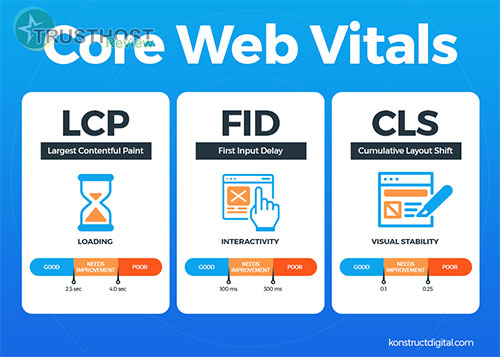Understanding Different Types of Hosting: Shared, VPS, Cloud, and Dedicated Hosting
For seasoned web professionals, understanding the nuances of web hosting is paramount. Choosing the right infrastructure can significantly impact website performance, security, and scalability. This article delves into the intricacies of different hosting types, catering specifically to experienced users like web developers, hosting providers, webmasters, and system administrators.

Shared hosting remains a popular choice for individuals and businesses with limited budgets and technical expertise. It involves multiple websites sharing a single physical server and its resources. While cost-effective, shared hosting comes with limitations:
- Resource Sharing: Performance can fluctuate depending on the resource consumption of co-tenants.
- Security Risks: Vulnerabilities on one website can potentially affect others on the same server.
- Limited Customization: Shared hosting typically restricts server-level configurations and software installations.
VPS Hosting: Balancing Performance and Control
Virtual Private Server (VPS) hosting provides a middle ground between shared and dedicated hosting. It utilizes virtualization technology to partition a physical server into multiple virtual servers, each with its own dedicated resources and operating system. Key advantages of VPS hosting include:
- Enhanced Performance: Dedicated resources result in faster loading speeds and improved website responsiveness.
- Increased Control: Root access allows for server customization, software installations, and enhanced security configurations.
- Scalability: Resources can be easily scaled up or down as needed, offering flexibility for growing websites.
Cloud Hosting: Leveraging the Power of Distributed Networks
Cloud hosting leverages a network of interconnected servers to distribute website data and resources. This distributed architecture offers unparalleled scalability, redundancy, and fault tolerance. Notable benefits of cloud hosting encompass:
- High Availability: If one server experiences downtime, traffic is automatically rerouted to other servers, ensuring continuous website availability.
- Unmatched Scalability: Resources can be instantly provisioned or de-provisioned based on real-time demands.
- Cost-Effectiveness: Pay-as-you-go pricing models allow businesses to only pay for the resources they consume.
Dedicated Hosting: Uncompromising Power and Control
Dedicated hosting provides exclusive access to an entire physical server and its resources. It's the ultimate solution for high-traffic websites, mission-critical applications, and businesses requiring maximum control, security, and performance.
- Unparalleled Performance: Dedicated resources ensure optimal website speed and responsiveness, even during peak traffic.
- Enhanced Security: Complete server isolation minimizes security risks and allows for custom security configurations.
- Full Customization: Administrators have complete control over the server's operating system, software, and hardware.
















